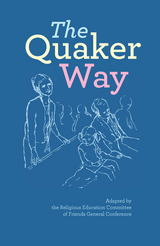

Advanced countries of the world have taken a hundred years to work out systems of primary education reasonably well adapted to the needs of their communities and to the varied capacities of the children in their schools; today many of the developing countries are trying to do the same thing in a decade. At first sight it might appear that with the help and experience of the developed word they could leap a century and establish straight away something approaching the modern classroom without having to plod through the stage of dreary formalism that marked the first fifty years of our system of compulsory education, in much the same way that many of them have been ushered into the air-age without ever knowing the smoke and dirt of a nineteenth-century railway system.
As Director of Education for New Zealand, with responsibilities also in Western Samoa and in New Zealand's Pacific Islands dependencies, for many years C. E. Beeby had to deal with two educational systems at very different levels of development. He reluctantly comes to the conclusion that new countries cannot simply adopt the systems that have evolved in other nations. He argues that an educational system of high quality must develop in distinct stages through which all systems, at least of a certain type, must pass, and which, though they may be shortened, cannot be skipped. Two main factors determine the stage of development of any primary school system: the level of general education of its teachers, and the length and type of their professional training.
Beeby emphasizes the need for young countries to maintain high educational standards in the face of an explosion of demand for schooling. He comments controversially on the respective roles of the economist and the educator in educational planning and on the need for a truly educational theory of growth to balance the economic theories that have tended to dominate educational planning. In a chapter as significant for developed countries as for emergent ones, he discusses conservatism in education and the peculiar pattern of resistance to change among the teaching profession. Beeby concludes with an examination of the difficulties young nations encounter in attempting to solve some of their problems through the application of new educational technology, and he describes the investigation that must be undertaken before one may assume that the new techniques and media can materially affect educational planning in these countries over the next decade.

A concise, yet engaging introduction to the field of ethics, this volume offers a systematic study of the foundations of moral responsibility. Montague Brown guides the reader on an examination of a wide range of ethical positions, including relativism, emotivism, egoism, utilitarianism, Kantian formalism, and natural law.
Brown explains not only the history behind the development of each position, but also the roles science, democracy, and religion play in moral thinking today.
Students and teachers of philosophy, ethics, and religion, as well as the general reader, will find that this book tackles the serious issues and offers an insightful, accessible introduction to major ethical positions and the great moral philosophers.

Contributors look to radical networks of care, sex, and activism present within diverse queer communities including HIV/AIDS organizing, the Wages for Housework movement, New York’s Clit Club community, and trans/queer collectives in San Francisco. The issue also includes a dossier of shorter contributions that offer speculative provocations about the radicalism of queer commonality across time and space, from Gezi Park uprisings in Turkey to future visions of collectivity outside of the internet.
Contributors
Arlen Austin, Zach Blas, Gavin Butt, Beth Capper, Ashon Crawley, Amalle Dublon, Macarena Gomez-Barris, Christina Hanhardt, Diarmuid Hester, Nadja Millner-Larsen, José Esteban Muñoz, Cenk Ozbay, Evren Savci, Eric Stanley

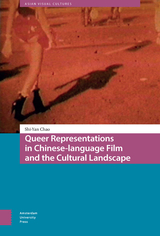
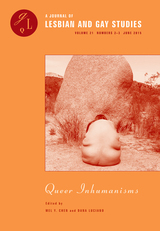
Mel Y. Chen, Associate Professor of Gender and Women’s Studies at the University of California, Berkeley, is the author of Animacies: Biopolitics, Racial Mattering, and Queer Affect, also published by Duke University Press. Dana Luciano is Associate Professor of English at Georgetown University. She is the author of Arranging Grief: Sacred Time and the Body in Nineteenth-Century America and editor, with Ivy G. Wilson, of Unsettled States: Nineteenth-Century American Literary Studies.
Contributors: Neel Ahuja, Karen Barad, Jayna Brown, Mel Y. Chen, Jack Halberstam, Jinthana Haritaworn, Myra Hird, Zakiyyah Iman Jackson, Eileen Joy, Eunjung Kim, Dana Luciano, Uri McMillan, José Esteban Muñoz, Tavia Nyong’o, Jasbir K. Puar, Susan Stryker, Kimberly Tallbear, Jeanne Vaccaro, Harlan Weaver, Jami Weinstein
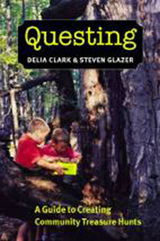

Que viva la musica!: Repaso de conversacion en espanol, or Long Live Music!: A Conversational Review is an open textbook intended for Spanish conversational review, typically a fourth-semester class. The textbook is organized around nine songs that afford students with opportunities to practice, aurally and orally, as well as in writing, the main communicative goals and key grammatical structures learned in previous classes. It can also be used in similar high school classes.
An enhanced edition of this textbook is available on the Press’s Manifold platform: https://temple.manifoldapp.org/projects/que-viva-la-musica

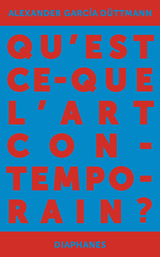
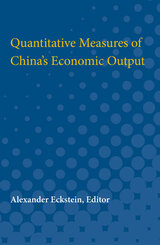

Contributors: Aliyyah Abdur-Rahman, Cynthia Barounis, Tyler Bradway, Ramzi Fawaz, Jennifer James, Martin Joseph Ponce, Natalie Prizel, Shanté Paradigm Smalls, Samuel Solomon.

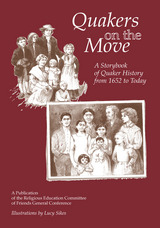


The central argument of Queer Roots for the Diaspora is that, in spite of these debates, ultimately the desire for roots contains the “roots” of its own deconstruction. The book considers alternative root narratives that acknowledge the impossibility of returning to origins with any certainty; welcome sexual diversity; acknowledge their own fictionality; reveal that even a single collective identity can be rooted in multiple ways; and create family trees haunted by the queer others patrilineal genealogy seems to marginalize.
The roots narratives explored in this book simultaneously assert and question rooted identities within a number of diasporas—African, Jewish, and Armenian. By looking at these together, one can discern between the local specificities of any single diaspora and the commonalities inherent in diaspora as a global phenomenon. This comparatist, interdisciplinary study will interest scholars in a diversity of fields, including diaspora studies, postcolonial studies, LGBTQ studies, French and Francophone studies, American studies, comparative literature, and literary theory.
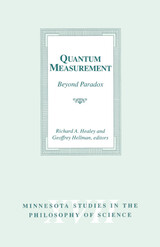
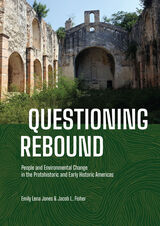
The extent of human impact on world environments is undeniable. At scales ranging from local to global, investigations continue to demonstrate that the ecosystems to which we currently belong are structured by human behavior. Catastrophic events such as war, disaster, disease, or economic decay have, at various times throughout history, led to the human abandonment of particular environments. What happens to a human-structured environment when the manner in which people use it abruptly changes? In Questioning Rebound, authors Emily Lena Jones and Jacob L. Fisher explore the archaeological record of the Americas during the period immediately following European contact, a time when the human footprint on the land abruptly shifted. During this era of disease-driven mortality, genocide, incarceration, and forced labor of Indigenous peoples, American landscapes changed in fundamental ways, producing short-lived ecosystems that later became the basis of myths regarding the natural state of environments across the Americas.
Questioning Rebound explores the record and the causes of environmental change during the period following European contact, featuring case studies throughout the Americas. While both the record for and the apparent causes of the changes in the human footprint vary, the record of post- contact environmental change consistently reflects the impacts of past social upheaval.

With quirky humor and wry insight, Swiss author Judith Keller’s micro-fictions unravel the fabric of daily life. She delves into the aporia of language by taking idiomatic expressions literally, unpacking the multiple meanings of words, and confounding expectations. Seven Zurich tram stops provide the framework for these familiar yet absurd portraits of passers-by, fellow passengers on the tram, the unemployed and the overemployed, the innocent and the suspicious, young mothers and confused elderly. The reader is taken on a journey through the city and offered glimpses of people going more or less successfully about their lives. These deceptively banal glimpses, however, show us more than we expect—they turn the lens back on us, puncture our complacency and ask, "Who are you to judge?"
The characters are hapless and far-fetched, trying to find their footing on shifting ground and grateful for what happiness they can find. In just a sentence or two, Keller unlocks metaphysical trapdoors. The Questionable Ones offers a collection of snapshots that reveal the extraordinary lurking inside the ordinary and the ordinary at the core of the extraordinary.

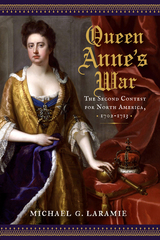
Told from the halls of power in North America and Europe, and through the eyes of the men and women who found themselves embroiled in this brutal realignment of colonial interests, Queen Anne’s War recreates the world of early North American expansion at the ground level, providing riveting accounts of the battles across settlements and wilderness as well as the motives, conditions, triumphs, and failures of the Europeans and their respective Native American allies. Based on extensive primary source research and command of English, French, and Spanish sources, the narrative not only describes the economic and geopolitical ramifications of the war that reshaped North America, but intriguingly reveals the sense of independence emerging in the colonies, from Puritan New England to plantation South Carolina, at the close of the war.

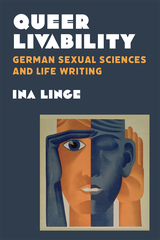
Queer Livability: German Sexual Sciences and Life Writing will be of interest to anyone who wants to learn more about LGBTQ+ history and literature. It also provides a fascinating insight into the historical roots for our thinking about gender and sexuality today. The book will be of relevance to an academic readership of students and faculty in German studies, literary studies, European history, and the interdisciplinary fields of gender and sexuality studies, medical humanities, and the history of sexuality.
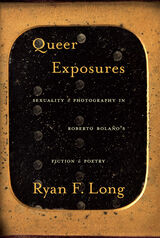
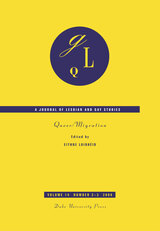
The issue, featuring essays by both established and emerging scholars, situates queer migration within global processes of colonization, globalization, capitalism, nationalism, and slavery. One contributor argues that a queer Atlantic history emerged during the Middle Passage experience of slavery, connecting this history to the contemporary movement of Haitian refugees and Dominican migrant laborers. Another contributor considers how the policing of queer migrant bodies and of “unnatural offenses” by colonial administrations in the Nicobar and Andaman islands ultimately reconfigured the ecology of the entire Indian Ocean archipelago. Still another contributor theorizes how gay couples composed of young Asian émigrés and considerably older white citizens negotiate Australian immigration policy to subvert dominant forms of nationalism and citizenship embedded in long histories of inequality between Australia and Asia. Other essays explore how transgender histories and theories transform queer migration scholarship; how “queer complicities” with contemporary neoliberal migration politics uphold regimes of violence and inequality; and how migration regimes and settlement policies in various parts of the world identify individuals as “queer,” “deviant,” or “abnormal” within racial, gender, class, cultural, and geopolitical hierarchies.
Contributors. Bobby Benedicto, Carlos Ulises Decena, Kale Bantigue Fajardo, Maja Horn, Adi Kuntsman, Eithne Luibhéid, Clare Sears, Omise’eke Natasha Tinsley, Kath Weston, Audrey Yue

Tracing flamenco’s development from its birth up to the contemporary era, the book places flamenco within significant historical periods such as the Spanish Civil War, Franco’s dictatorship, the transition to democracy, and the economic crisis of 2008, up to contemporary performances of the late 2010s. In taking a queer approach to History, the author abandons antiquated debates about purities and impurities; anecdotes about the lives of artists that are completely detached from their processes of creation; and myths about geniuses who seem to make art alone and completely detached from their collaborators and the historical, social, economic and artistic moment in which they lived. A Queer History of Flamenco is not only about the present and the queerness of people living, performing, or creating in it, but also about flamenco’s past in which so many queer artists and practices and their lives have remained unearthed and unaddressed.

Contributors. Jonathan Beaverstock, Roger Burrows, Aeron Davis, Sarah Hall, Caroline Knowles, Jo Littler, Joanne Roberts, Elisabeth Schimpföss, Paula Serafini, Jennifer Smith Maguire
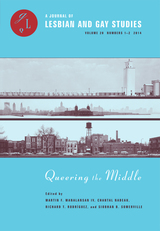
The introduction provides a discussion of the theoretical and critical motivations for understanding the middle as a queer vantage, while the six articles focus on social movements, queer community networks, Midwest-based expressive cultures, and local and diasporic rearticulations of racial, gender, and sexual politics.
At the University of Illinois at Urbana-Champaign, Martin Manalansanis Associate Professor in the Department of Anthropology, Chantal Nadeau is Professor and Chair of Gender and Women’s Studies, and Richard T. Rodríguez and Siobhan B. Somerville are Associate Professors in the Department of English.
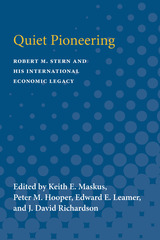


Europe is a popular destination for LGBTQ people seeking to escape discrimination and persecution. Yet, while European institutions have done much to promote the legal equality of sexual minorities and a number of states pride themselves on their acceptance of sexual diversity, the image of European tolerance is often quite different from the reality faced by LGBTQ migrants and asylum seekers. Queer Migration and Asylum in Europe brings together scholars from politics, sociology, urban studies, anthropology, and law to analyze how and why queer individuals migrate to Europe, as well as the legal, social, and political frameworks they are forced to navigate in the destination societies. The subjects covered include LGBTQ Latino migrants in queer and diasporic spaces in London; the diasporic consciousness of queer Polish, Russian, and Brazilian migrants in Berlin; the role of the Council of Europe in shaping legal and policy frameworks relating to queer migration and asylum; the challenges facing bisexual asylum seekers; queer asylum and homonationalism in the Netherlands; and the role of space, faith, and LGBTQ organizations in Germany, Italy, the UK, and France in supporting queer asylum seekers.

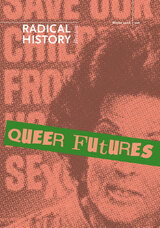
Distinguished by its historical approach, “Queer Futures” examines homonormativity as a phenomenon that emerged in the United States after World War II and gained traction in the 1960s and 1970s. One essay compares Anita Bryant’s antigay campaigns in the late 1970s with those of current same-sex marriage proponents to show how both focus on the abstract figure of the “endangered child.” Another essay explores how the Gay and Lesbian Alliance Against Defamation’s organizational amnesia has shaped its often conservative agenda. Other essays include a Marxist reading of the transsexual body, an examination of reactionary politics at the core of the movement to repeal the U.S. military’s “don’t ask, don’t tell” policy, and a history of how “safe streets” patrols in the 1970s and 1980s became opportunities for urban gentrification and community exploitation.
Contributors. Anna M. Agathangelou, Daniel Bassichis, Aaron Belkin, Nan Alamilla Boyd, Maxime Cervulle, Vincent Doyle, Roderick A. Ferguson, Christina Hanhardt, Dan Irving, Regina Kunzel, Patrick McCreery, Kevin P. Murphy, Tavia Nyong’o, Jason Ruiz, David Serlin, Tamara L. Spira, Susan Stryker, Margot D. Weiss
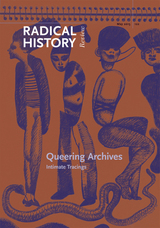
This issue considers how archives allow historical traces of sexuality and gender to be sought, identified, recorded, and assembled into accumulations of meaning. Contributors explore conundrums in contemporary queer archival methods, probing some of them in essays on the Catholic Church and the Church of Jesus Christ of Latter-Day Saints. This issue also includes a series of intergenerational interviews reflecting on histories of LGBT archives, a roundtable discussion about legacies of queer studies of the archive, and a closing reflection by Joan Nestle, a founding figure in the practice of international queer archiving.
Daniel Marshall is Senior Lecturer in the Faculty of Arts and Education at Deakin University, Melbourne. Kevin P. Murphy is Associate Professor of History at the University of Minnesota and a member of the Radical History Review editorial collective. Zeb Tortorici is Assistant Professor of Spanish and Portuguese Languages and Literatures at New York University.
Contributors: Rustem Ertug Altinay, Anjali Arondekar, Elspeth H. Brown, Elise Chenier, Howard Chiang, Ben Cowan, Ann Cvetkovich, Sara Davidmann, Leah DeVun, Peter Edelberg, Licia Fiol-Matta, Jack Jen Gieseking, Christina Hanhardt, Robb Hernandez, Kwame Holmes, Regina Kunzel, A. J. Lewis, Martin F. Manalansan IV, María Elena Martínez, Michael Jay McClure, Caitlin McKinney, Katherine Mohrman, Joan Nestle, Mimi Thi Nguyen, Tavia Nyong’o, Anthony M. Petro, K. J. Rawson, Barry Reay, Juana María Rodríguez, Don Romesburg, Rebecka Sheffield, Marc Stein, Margaret Stone, Susan Stryker, Robert Summers, Jeanne Vaccaro, Dale Washkansky, Melissa White
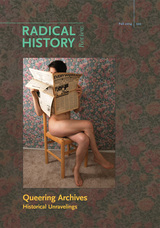
This issue explores the evolution of grassroots LGBT archives, debates over queer migrations, nationalism and the institutionalization of LGBT memory, the archiving of transgender activism, digitization and the classificatory systems of the archive, performances of the colonial archive, museums as archives, and everyday objects as archivable texts.
Daniel Marshall is Senior Lecturer in the Faculty of Arts and Education at Deakin University, Melbourne. Kevin P. Murphy is Associate Professor of History at the University of Minnesota and a member of the Radical History Review editorial collective. Zeb Tortorici is Assistant Professor of Spanish and Portuguese Languages and Literatures at New York University.
Contributors: Rustem Ertug Altinay, Anjali Arondekar, Elspeth H. Brown, Elise Chenier, Howard Chiang, Ben Cowan, Ann Cvetkovich, Sara Davidmann, Leah DeVun, Peter Edelberg, Licia Fiol-Matta, Jack Jen Gieseking, Christina Hanhardt, Robb Hernandez, Kwame Holmes, Regina Kunzel, A. J. Lewis, Martin F. Manalansan IV, María Elena Martínez, Michael Jay McClure, Caitlin McKinney, Katherine Mohrman, Joan Nestle, Mimi Thi Nguyen, Tavia Nyong’o, Anthony M. Petro, K. J. Rawson, Barry Reay, Juana María Rodríguez, Don Romesburg, Rebecka Sheffield, Marc Stein, Margaret Stone, Susan Stryker, Robert Summers, Jeanne Vaccaro, Dale Washkansky, Melissa White
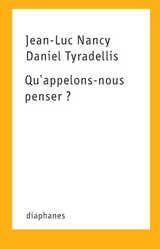
Cet échange rare et singulier traite de la précarité de toute pensée, qu’elle s’établisse dans la langue, dans l’image, dans le corps ou dans l’espace ; du nous et de la pensée partagée qui ouvre les possibilités du sens. Il dessine une pensée qui s’épuise, mais qui aime aussi, et nous redonne foi en l’existence.


Contributors. M. H. Abrams, Edward Albee, Barry Allen, Wayne Andersen, Kwame Anthony Appiah, Sir Isaiah Berlin, Marianna Birnbaum, Sir John Boardman, G. W. Bowersock, Aldo Buzzi, Caroline Walker Bynum, Anne Carson, William M. Chace, J. M. Coetzee, Cornelius Castoriadis, Stanley Cavell, Stuart Clark, Inga Clendinnen, Francis X. Clooney, Christopher Coker, Maria Conterno, Michael Cook, Lorraine Daston, Lydia Davis, Natalie Zemon Davis, Thibault De Meyer, Gunter Eich, Sir John H. Elliott, Caryl Emerson, Mikhail Epstein, Péter Esterházy, Roger Cardinal Etchegaray, Fang Lizhi, Paul Feyerabend, Michael Fried, Joseph Frank, Manfred Frank, Luis Garcia, Clifford Geertz, Carlo Ginzburg, Philip Gossett, Stephen Greenblatt, Thom Gunn, Jürgen Habermas, Ian Hacking, Václav Havel, Sir Edward Heath, Albert O. Hirschman, David Hollinger, Darrel Alejandro Holnes, Miroslav Holub, Maya Jasanoff, Albert R. Jonsen, Stanley N. Katz, Hugh Kenner, Sir Anthony Kenny, Sir Frank Kermode, Jee Leong Koh, Joseph Leo Koerner, Yusef Komunyakaa, György Konrád, Bruce Krajewski, László Krasznahorkai, Anton O. Kris, Julia Kristeva, Bruno Latour, Ewa Lipska, Greil Marcus, Steven Marcus, Samuel Menashe, Adam Michnik, Jack Miles, Alexander Nehamas, Reviel Netz, Sari Nusseibeh, Jeffrey M. Perl, Marjorie Perloff, J. G. A. Pocock, W. V. Quine, Belle Randall, Nadja Reissland, Colin Richmond, Richard Rorty, Ingrid Rowland, Hanna Segal, Amartya Sen, Quentin Skinner, Barbara Herrnstein Smith, A. L. Snijders, Timothy Snyder, Susan Sontag, Isabelle Stengers, Wis?awa Szymborska, Miguel Tamen, G. Thomas Tanselle, Sir Keith Thomas, Stephen Toulmin, Anna Lowenhaupt Tsing, Michiko Urita, Bas van Fraassen, Marina Vanzolini, Gianni Vattimo, Helen Vendler, Charlie Samua Veric, Eduardo Viveiros de Castro, Sir Bernard Williams, Lord (Rowan) Williams, H. R. Woudhuysen, Grzegorz Wróblewski, Santiago Zabala

Syncretistic exegesis.
The philosopher Philo was born about 20 BC to a prominent Jewish family in Alexandria, the chief home of the Jewish Diaspora as well as the chief center of Hellenistic culture; he was trained in Greek as well as Jewish learning. In attempting to reconcile biblical teachings with Greek philosophy he developed ideas that had wide influence on Christian and Jewish religious thought.
The Loeb Classical Library edition of the works of Philo is in ten volumes and two supplements, distributed as follows. Volume I: Creation; Interpretation of Genesis II and III. II: On the Cherubim; The Sacrifices of Abel and Cain; The Worse Attacks the Better; The Posterity and Exile of Cain; On the Giants. III: The Unchangeableness of God; On Husbandry; Noah's Work as a Planter; On Drunkenness; On Sobriety. IV: The Confusion of Tongues; The Migration of Abraham; The Heir of Divine Things; On the Preliminary Studies. V: On Flight and Finding; Change of Names; On Dreams. VI: Abraham; Joseph; Moses. VII: The Decalogue; On Special Laws Books I–III. VIII: On Special Laws Book IV; On the Virtues; Rewards and Punishments. IX: Every Good Man Is Free; The Contemplative Life; The Eternity of the World; Against Flaccus; Apology for the Jews; On Providence. X: On the Embassy to Gaius; indexes. Supplement I: Questions on Genesis. II: Questions on Exodus; index to supplements.

Syncretistic exegesis.
The philosopher Philo was born about 20 BC to a prominent Jewish family in Alexandria, the chief home of the Jewish Diaspora as well as the chief center of Hellenistic culture; he was trained in Greek as well as Jewish learning. In attempting to reconcile biblical teachings with Greek philosophy he developed ideas that had wide influence on Christian and Jewish religious thought.
The Loeb Classical Library edition of the works of Philo is in ten volumes and two supplements, distributed as follows. Volume I: Creation; Interpretation of Genesis II and III. II: On the Cherubim; The Sacrifices of Abel and Cain; The Worse Attacks the Better; The Posterity and Exile of Cain; On the Giants. III: The Unchangeableness of God; On Husbandry; Noah's Work as a Planter; On Drunkenness; On Sobriety. IV: The Confusion of Tongues; The Migration of Abraham; The Heir of Divine Things; On the Preliminary Studies. V: On Flight and Finding; Change of Names; On Dreams. VI: Abraham; Joseph; Moses. VII: The Decalogue; On Special Laws Books I–III. VIII: On Special Laws Book IV; On the Virtues; Rewards and Punishments. IX: Every Good Man Is Free; The Contemplative Life; The Eternity of the World; Against Flaccus; Apology for the Jews; On Providence. X: On the Embassy to Gaius; indexes. Supplement I: Questions on Genesis. II: Questions on Exodus; index to supplements.
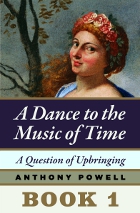
Anthony Powell’s universally acclaimed epic A Dance to the Music of Time offers a matchless panorama of twentieth-century London. Now, for the first time in decades, readers in the United States can read the books of Dance as they were originally published—as twelve individual novels—but with a twenty-first-century twist: they’re available only as e-books.
A Question of Upbringing (1951) introduces us to the young Nick Jenkins and his housemates at boarding school in the years just after World War I. Boyhood pranks and visits from relatives bring to life the amusements and longueurs of schooldays even as they reveal characters and traits that will follow Jenkins and his friends through adolescence and beyond: Peter Templer, a rich, passionate womanizer; Charles Stringham, aristocratic and louche; and Kenneth Widmerpool, awkward and unhappy, yet strikingly ambitious. By the end of the novel, Jenkins has finished university and is setting out on a life in London; old ties are fraying, new ones are forming, and the first steps of the dance are well underway.
"Anthony Powell is the best living English novelist by far. His admirers are addicts, let us face it, held in thrall by a magician."—Chicago Tribune
"A book which creates a world and explores it in depth, which ponders changing relationships and values, which creates brilliantly living and diverse characters and then watches them grow and change in their milieu. . . . Powell's world is as large and as complex as Proust's."—Elizabeth Janeway, New York Times
"One of the most important works of fiction since the Second World War. . . . The novel looked, as it began, something like a comedy of manners; then, for a while, like a tragedy of manners; now like a vastly entertaining, deeply melancholy, yet somehow courageous statement about human experience."—Naomi Bliven, New Yorker
“The most brilliant and penetrating novelist we have.”—Kingsley Amis
“There is no other work in the annals of European fiction that attempts meticulously to recreate half a century of history, decade by decade, with anything like the emotional precision or details of Powell’s twelve volumes. Neither Balzac’s panorama of the Restoration, nor Zola’s chronicles of the Second Empire, nor Proust’s reveries in the Belle Epoque can match a comparable span of time, an attention to variations within it, or a compositional intricacy capable of uniting them into a single narrative. . . . The elegance of this artifice was only compatible with comedy.”—Perry Anderson
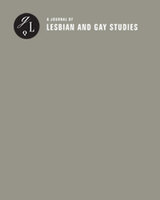
Essays explore a range of geographical areas and cover topics that include an autoethnographic account of a queer traveler in Cuba, the development of gay and lesbian tourism in Madrid and Mexico, and gay and lesbian tourist events such as World Pride 2001 in Rome. The collection also includes an essay focusing on lesbian tourism—a study of the history of lesbian tourism on Eresos, Lesvos.
Contributors. Lionel Cantú, Gabriel Giorgi, Venetia Kantsa, Lawrence La Fountain-Stokes, Michael Luongo, Kevin Markwell, Jasbir Kaur Puar, Dereka Rushbrook

This is the first biography in a hundred years of Jeanne d'Albret, a femme politique worthy of comparison with Elizabeth of England (her ally) and Catherine de Medici (her opponent) in a period when all the political and ideological currents of Reformation Europe converged in France. Her career as a feudal ruler in southwest France illustrates the changing relations between the high nobility and the crown, while her role as co-leader, with Coligny, of the Calvinist party at its height contributes to an understanding of the failure of the French Reformation. As the mother of Henry IV, she was responsible for the political education of France's most popular king, some of whose problems were inherited from her along with the models for some solutions.
The daughter of Marguerite de Navarre, Jeanne d'Albret experienced a dramatic series of crises which her uncompromising Calvinism and iron will enabled her to survive. In addition to the many unpublished letters included here, the author's insights into the character and motives of this unusual woman constitute one of the most enlightening aspects of her biography. Nancy Lyman Roelker's vivid style breathes life into a host of fascinating figures in an era in France richly colored by intrigue, war, and turbulent religious conflict.

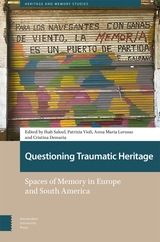

Contributors examine the relationships among reader, creator, and community across a range of comics production, including mainstream superhero comics, independent LGBTQ comics, and avant-garde and experimental feminist narratives. They also address queer forms of identification elicited by the classic X-Men character Rogue, the lesbian grassroots publishing networks that helped shape Alison Bechdel’s oeuvre, and the production of black queer fantasy in the Black Panther comic book series, among other topics.
Contributors andré carrington, Anthony Michael D’Agostino, Ramzi Fawaz, Margaret Galvan, Yetta Howard, Joshua Abraham Kopin, Kate McCullough, Darieck Scott, Jessica Q. Stark, Shelley Streeby, Rebecca Wanzo

A lavishly illustrated historical overview,Qur'ans: Books of Divine Encounter brings together in one volume a magnificent range of Qur'ans, bearing singular insight into these beautiful and significant sacred texts.
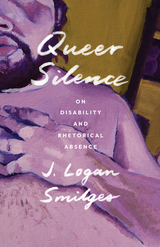
Championing the liberatory potential of silence to address the fraught disability politics of queerness
In queer culture, silence has been equated with voicelessness, complicity, and even death. Queer Silence insists, however, that silence can be a generative and empowering mode of survival. Triangulating insights from queer studies, disability studies, and rhetorical studies, J. Logan Smilges explores what silence can mean for people whose bodyminds signify more powerfully than their words.
Queer Silence begins by historicizing silence’s negative reputation, beginning with the ways homophile activists rejected medical models pathologizing homosexuality as a disability, resulting in the silencing of disability itself. This silencing was redoubled by HIV/AIDS activism’s demand for “out, loud, and proud” rhetorical activities that saw silence as capitulation.
Reading a range of cultural artifacts whose relative silence has failed to attract queer attachment, from anonymous profiles on Grindr to ex-gays to belated gender transitions to disability performance art, Smilges argues for silence’s critical role in serving the needs of queers who are never named as such. Queer Silence urges queer activists and queer studies scholars to reconcile with their own ableism by acknowledging the liberatory potential of silence, a mode of engagement that disattached queers use every day for resistance, sociality, and survival.
Cover alt text: Background detail of a painting on canvas shows a partial view of the upper body and face of a figure, bearded and naked; title in painted script.
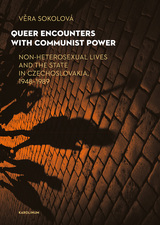
Contrary to expectations, the book reveals that despite the Czechoslovak Communist regime’s brutality in many areas of life, the state did not carry out a hateful or seditious campaign against homosexual and non-heterosexual people. Rather, the official state sexology offices functioned from the late 1970s onward as essentially the first gay clubs in socialist Czechoslovakia. Interweaving the memories of non-heterosexual Czech women born between 1929 and 1952, Věra Sokolová’s study both enriches and challenges existing scholarship on lesbian and gay history during this era, promising to radically change the way we view gender, sexuality, and everyday life during East European socialism.

These comics are created by queer artists for queer audiences and with the intent for queer self-expression and representation. Social science researchers spoke to diverse members of LGBTQ+ communities to explore their beliefs about and experiences of compassion. Fifteen queer comics were commissioned to illustrate those stories, making the process of creating each comic a unique collaboration between researchers and artists, blending data exploring the meanings of compassion for queer folks with the creativity, passion, and understanding of a queer comic artist.
These stories reflect not only the harsh realities that many queer people face but they also uplift queer voices, illustrate strength, and capture queer resolve to make life more compassionate. Queer people, living in a cis-heteronormative world, often face experiences of marginalization, discrimination, stigma, trauma, and invisibility in everyday life. Queer Compassion shows that its titular emotion can be the bridge that brings understanding and creates community connections — a bridge that is particularly needed at this time.

In order to draw parallels between art, science, and culture, this publication will explore the ways that selected art works have contributed to a form of cultural pedagogy. It follows the integration of culture and science in artists’ expressions to create meaningful experiences that expose the probabilities and uncertainties equally present in the world of science.
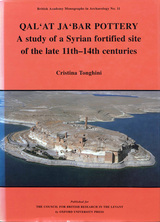
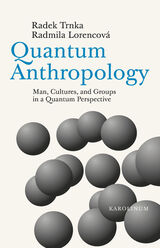


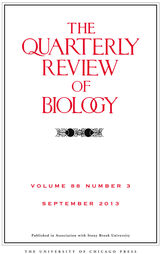

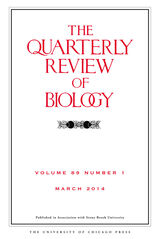



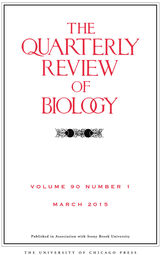
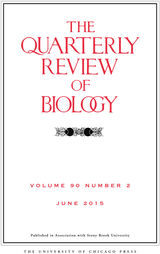


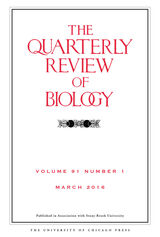


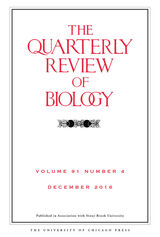


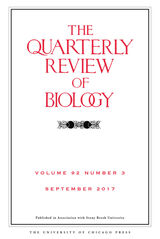
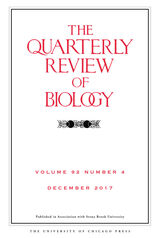


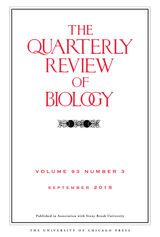
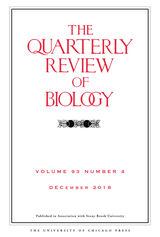
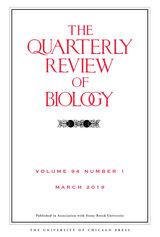
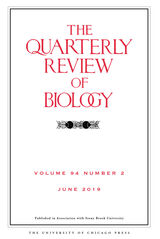


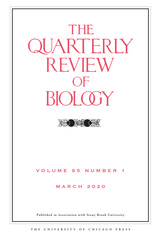

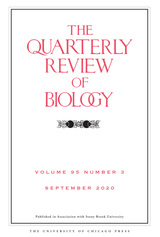



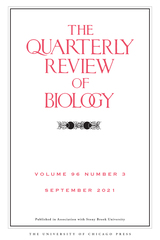
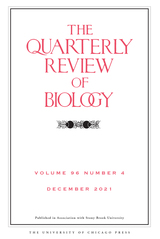
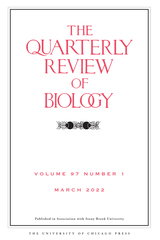
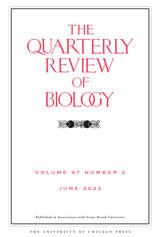
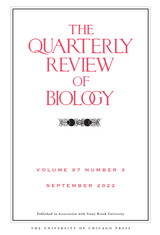
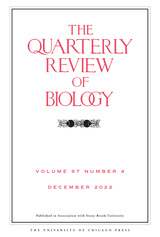
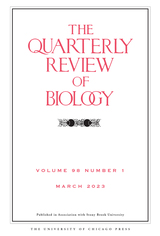
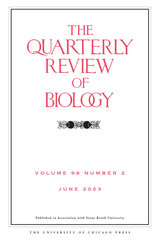
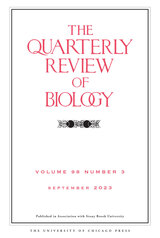
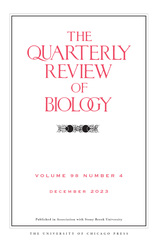

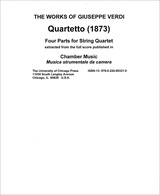
READERS
Browse our collection.
PUBLISHERS
See BiblioVault's publisher services.
STUDENT SERVICES
Files for college accessibility offices.
UChicago Accessibility Resources
home | accessibility | search | about | contact us
BiblioVault ® 2001 - 2024
The University of Chicago Press









